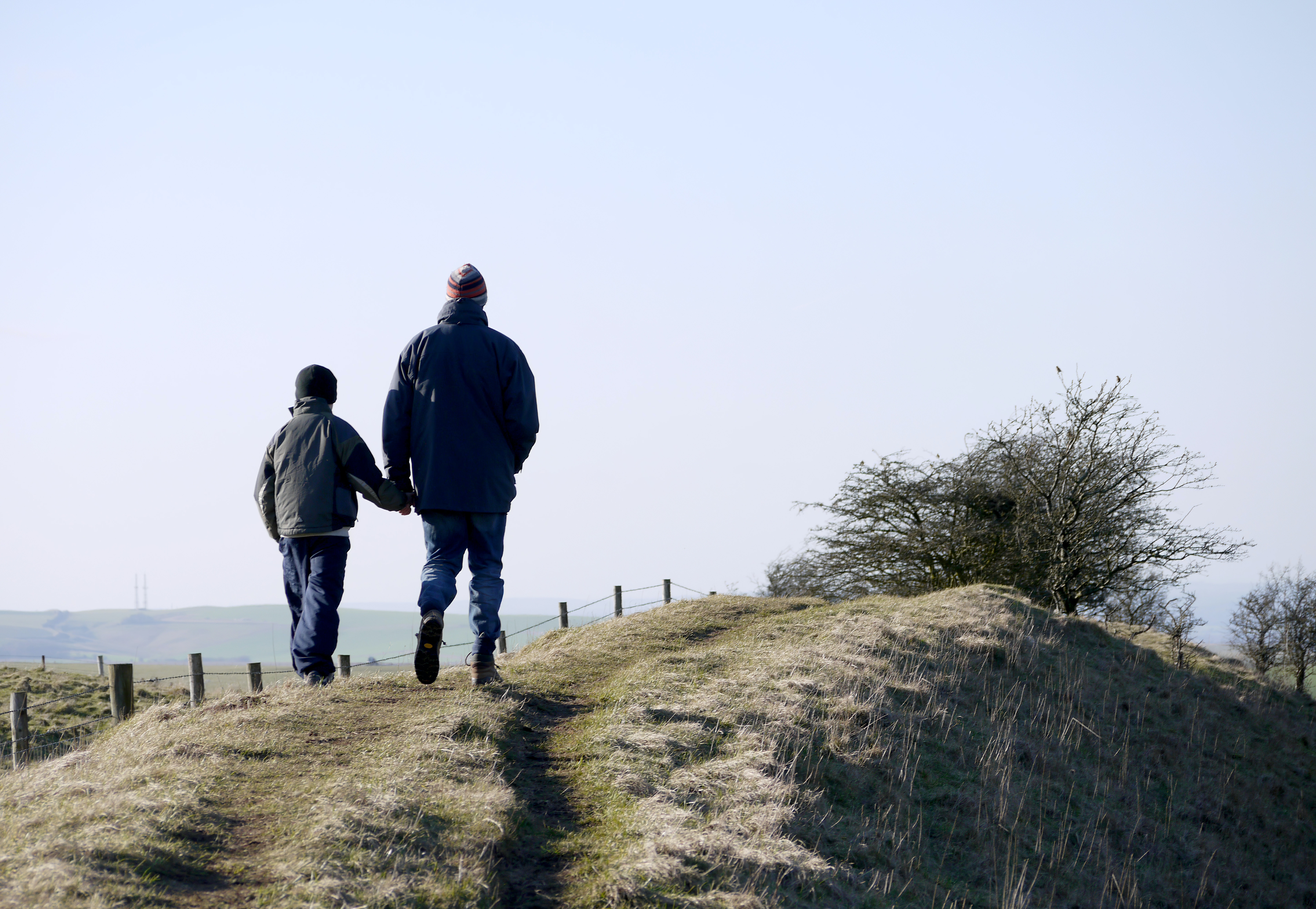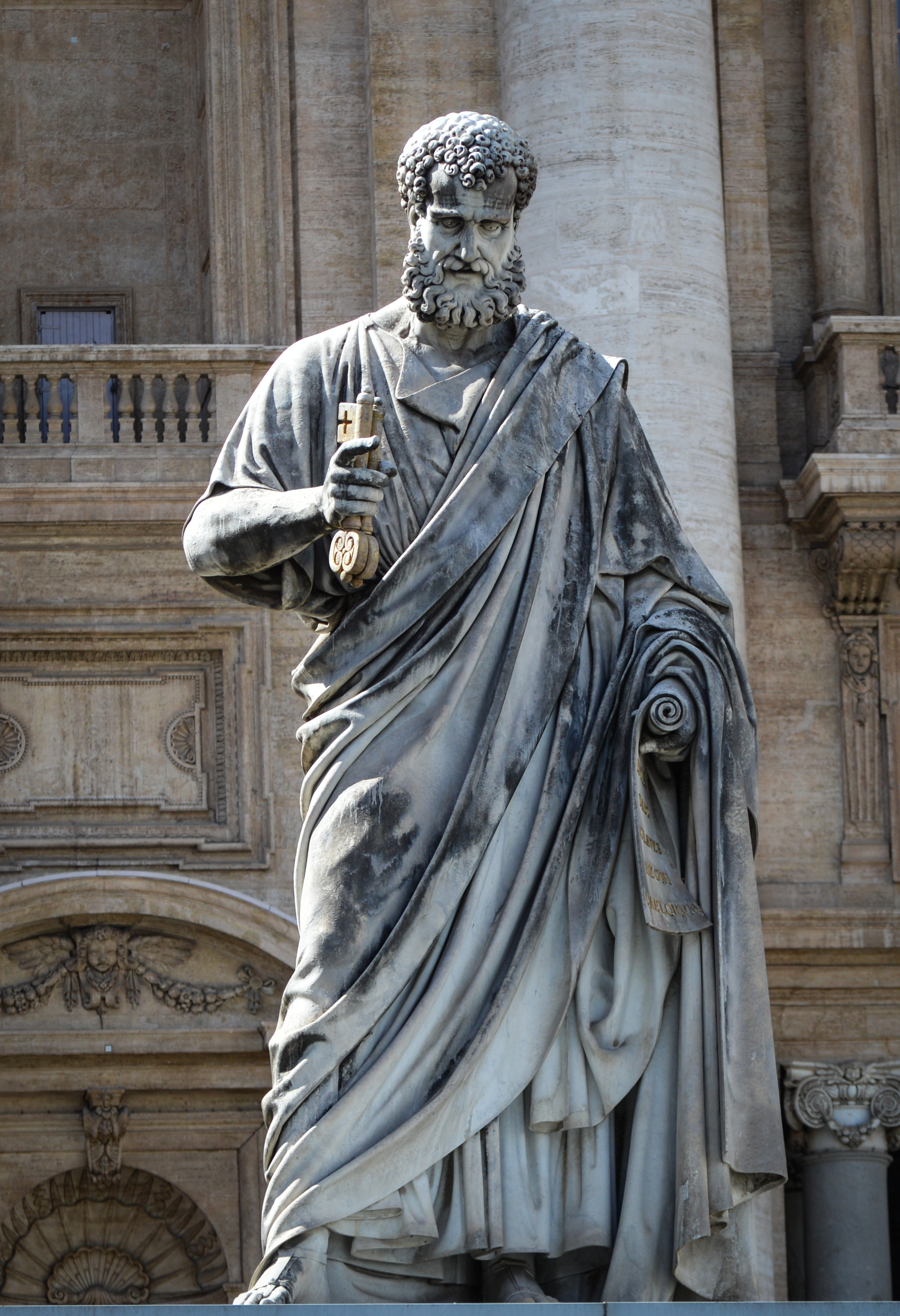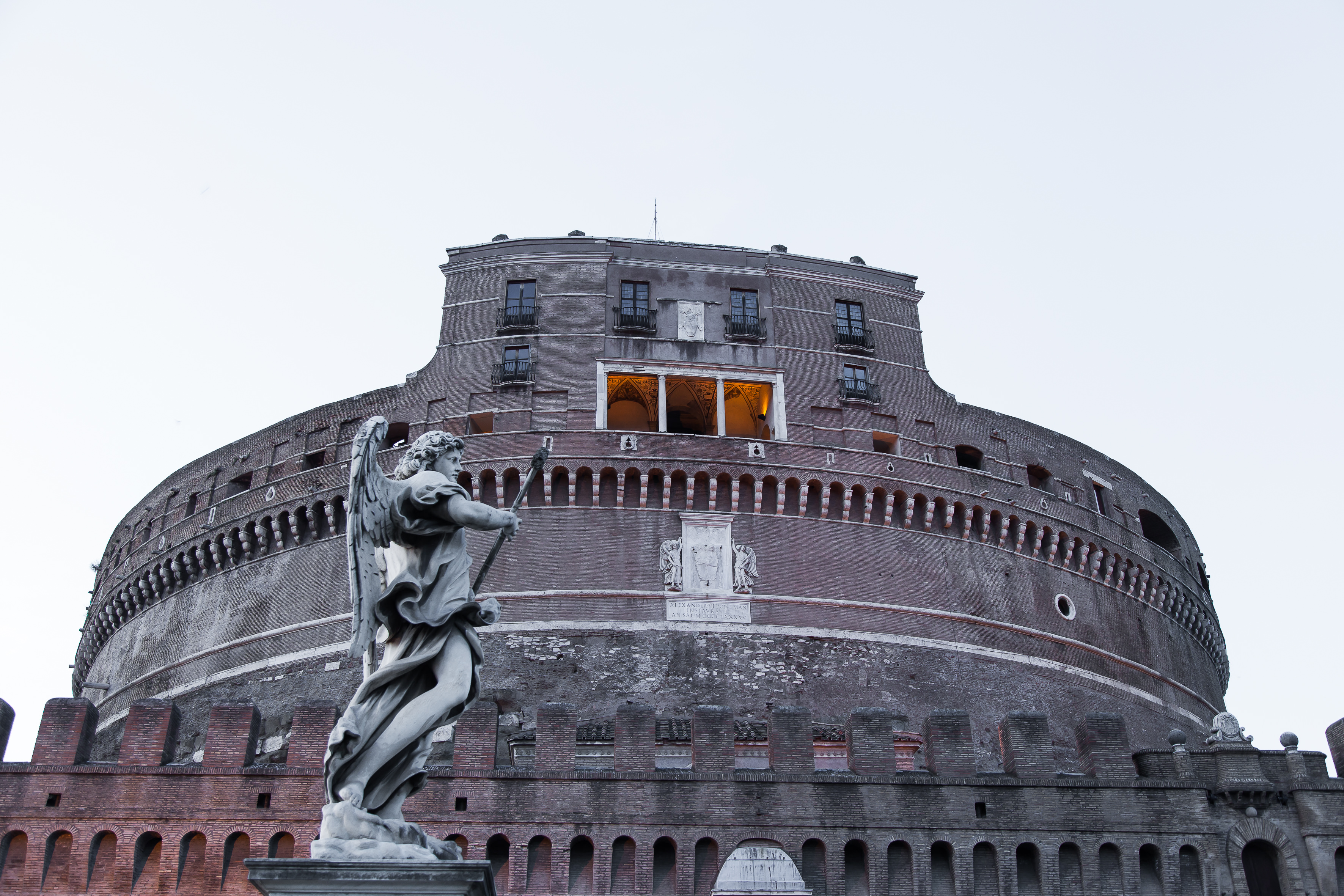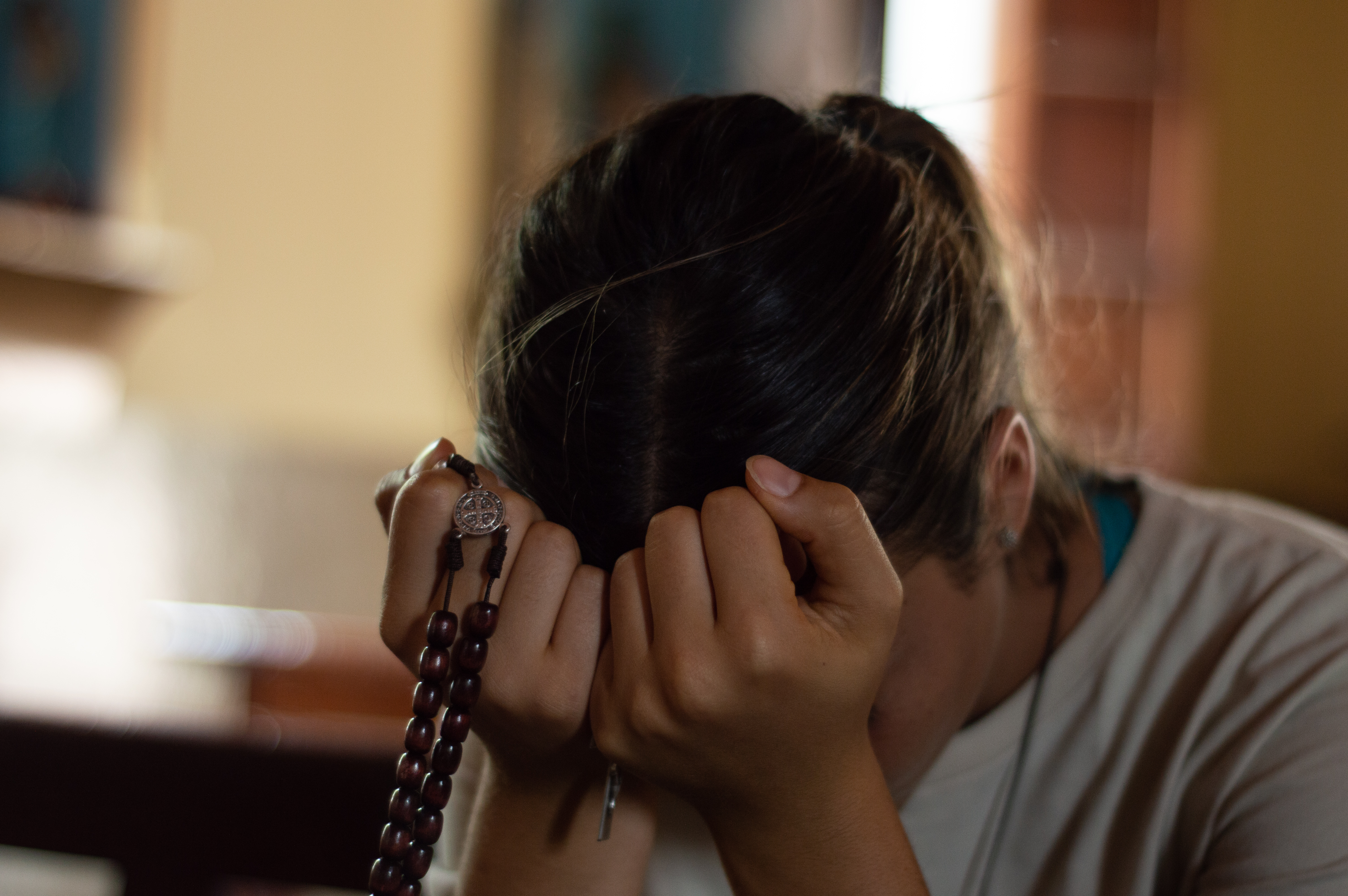The First Reading today from Genesis is right after the great flood. God has just made a covenant with his people and promised never again to wipe out the earth. Noah is trying to bring his people into the arms of God, but immediately the earth goes back to their wretched ways. Even after the amazing signs and wonders God has done, humanity still prefers to do it their way. They think they are better than God. Sound familiar? We all have this same problem, or at least I know that I do. The amount of times I try to pull myself up and do things on my own is staggering. Somehow we think we have better plans than God.
The people at the Tower of Babel are trying to fulfill four desires by building the tower. First, they want to build a magnificent architectural marvel. Not to glorify God but so that all nations will see how amazing they are. Second, they want the tower to reach the heavens. They want to show God how incredible they are and what they can do by their own power. Third, they want to make a name for themselves in history. They want to be written about, and they were, just not in the way they expected. And finally, they want to avoid being scattered. In the ancient near east having people around was the only way to live. Unlike our individualistic society today, they needed family and community in order to survive. Being scattered was basically a death sentence where they would be left to their own devices.
I think today we all have similar desires. We want to try to do things our way, to make a name for ourselves, and to show God how great we are. Have you ever noticed when people introduce themselves one of the first things they ask is what you do for a living? We focus so much on status and what we are doing that we sometimes forget the Father’s love and our complete dependence on him. Thankfully we have the Gospel today as well that gives us a roadmap for reorienting our lives so that we can remember the Father and his love.
Jesus makes it clear, “Whoever wishes to come after me must deny himself, take up his cross, and follow me.” Easier said than done. But something that helps me is to remember that since we are made in the image and likeness of God, we are never fully happy until we give our lives over to our Creator. God doesn’t want us to deny ourselves so that we are miserable. He wants us to deny ourselves so we can more fully lean on him. He wants to embrace us and help us. He wants to be a loving father.
Since I have become a dad it is very clear that my son Gabe needs a lot of help. He is dependent on us for everything and we want to give him the world. I think this is probably why Jesus is constantly reminding us to be more like children. They understand that they need their parents. We get caught up in the world and slowly start to believe as we grow that we don’t need that anymore. But if we search deep down we realize that we still need family. Nobody wants to be scattered. God has set up his kingdom so that we all might join his family and be happy with him forever in heaven. What desire is holding you back? What desire is holding me back? If we are honest about that question then we can start to see that we need God, and more than that, that he wants to be there for us. Let’s take hope in that fact and take a moment today to thank God for being the loving father that he is, always there for his children, waiting for us to cry out, Father!
From all of us here at Diocesan, God bless!
La Primera Lectura de hoy del Génesis cae justo después del gran diluvio. Dios acaba de hacer un pacto con su pueblo y prometió nunca más destruir la tierra. Noé está tratando de llevar a su pueblo a los brazos de Dios, pero inmediatamente la tierra vuelve a sus caminos miserables. Incluso después de las asombrosas señales y prodigios que Dios ha hecho, la humanidad todavía prefiere hacerlo a su manera. Creen que son mejores que Dios. ¿Suena familiar? Todos tenemos este mismo problema, o al menos sé que lo tengo yo. La cantidad de veces que trato de levantarme y hacer las cosas por mi cuenta es asombrosa. De alguna manera pensamos que tenemos mejores planes que Dios.
La gente de la Torre de Babel está tratando de cumplir cuatro deseos al construir la torre. Primero, quieren construir una magnífica maravilla arquitectónica. No para glorificar a Dios sino para que todas las naciones vieran lo asombrosos que son. En segundo lugar, quieren que la torre alcance los cielos. Quieren mostrarle a Dios lo increíbles que son y lo que pueden hacer con su propio poder. Tercero, quieren hacerse un nombre en la historia. Quieren que se escriba sobre ellos, y así fue, pero no de la manera que esperaban. Y por último, quieren evitar que se dispersen. En el antiguo Cercano Oriente, tener gente alrededor era la única forma de vivir. A diferencia de nuestra sociedad individualista actual, necesitaban una familia y una comunidad para poder sobrevivir. Estar dispersos era básicamente una sentencia de muerte en la que serían dejados a su suerte.
Creo que hoy todos tenemos deseos similares. Queremos intentar hacer las cosas a nuestra manera, hacernos un nombre y mostrarle a Dios lo grandes que somos. ¿Alguna vez has notado que cuando las personas se presentan, una de las primeras cosas que preguntan es a qué te dedicas? Nos enfocamos tanto en el estatus y en lo que estamos haciendo que a veces olvidamos el amor del Padre y que somos completamente dependientes de él. Afortunadamente, también tenemos el Evangelio de hoy que nos orienta para reencaminar nuestras vidas para que podamos recordar al Padre y su amor.
Jesús lo deja claro: “El que quiera venir en pos de mí, niéguese a sí mismo, tome su cruz y sígame”. Es más fácil decirlo que hacerlo. Pero algo que me ayuda es recordar que como estamos hechos a imagen y semejanza de Dios, nunca somos plenamente felices hasta que entregamos nuestra vida a nuestro Creador. Dios no quiere que nos neguemos a nosotros mismos para que seamos miserables. Él quiere que nos neguemos a nosotros mismos para que podamos apoyarnos más plenamente en él. Él quiere abrazarnos y ayudarnos. Quiere ser un padre amoroso.
Desde que me convertí en papá, está muy claro que mi hijo Gabe necesita mucha ayuda. Depende de nosotros para todo y queremos darle el mundo. Probablemente esta es la razón por la que Jesús nos recuerda constantemente que seamos más como niños. Entienden que necesitan a sus padres. Nos quedamos atrapados en el mundo y poco a poco empezamos a creer a medida que crecemos que ya no necesitamos eso. Pero si miramos muy a fondo de nosotros mismos nos damos cuenta de que todavía necesitamos familia. Nadie quiere estar disperso. Dios ha establecido su reino para que todos podamos unirnos a su familia y ser felices con él para siempre en el cielo. ¿Qué deseo te estorba? ¿Qué deseo me estorba a mí? Si somos honestos acerca de esa pregunta, podemos comenzar a ver que necesitamos a Dios, y más que eso, que él quiere estar ahí para nosotros. Tengamos esperanza en ese hecho y tomemos un momento hoy para agradecer a Dios por ser el padre amoroso que es, siempre presente para sus hijos, esperando que clamemos, ¡Padre!
De parte de todos nosotros aquí en Diocesan, ¡Dios los bendiga!

Tommy Shultz is a Business Development Representative for Diocesan. In this role he is committed to bringing the best software to dioceses and parishes while helping them evangelize on the digital continent. Tommy has worked in various diocese and parish roles since his graduation from Franciscan University with a Theology degree. He hopes to use his skills in evangelization, marketing, and communications, to serve the Church and bring the Good News to all. His favorite quote comes from St. John Paul II, who said, “A person is an entity of a sort to which the only proper and adequate way to relate is love.”
Feature Image Credit: Brett Jordan, unsplash.com/photos/Yd4lXGfsXEk


 Dakota lives in Denver, CO with her husband, Ralph, and their two sons, Alfie & Theophilus. She is the Dean of Enrollment Management for Bishop Machebeuf High School where her husband also teaches. You can find Dakota at the zoo or a brewery with her family or with her nose in a book at home. For more of Dakota’s writing check out
Dakota lives in Denver, CO with her husband, Ralph, and their two sons, Alfie & Theophilus. She is the Dean of Enrollment Management for Bishop Machebeuf High School where her husband also teaches. You can find Dakota at the zoo or a brewery with her family or with her nose in a book at home. For more of Dakota’s writing check out 
 Kathryn Mulderink, MA, is married to Robert, Station Manager for Holy Family Radio. Together they have seven children (including Father Rob), and seven grandchildren. She is President of the local community of Secular Discalced Carmelites and has published five books and many articles. Over the last 30 years, she has worked as a teacher, headmistress, catechist, Pastoral Associate, and DRE, and as a writer and voice talent for Catholic Radio. Currently, she serves the Church by writing and speaking, and by collaborating with various parishes and to lead others to encounter Christ and engage their faith. Her website is
Kathryn Mulderink, MA, is married to Robert, Station Manager for Holy Family Radio. Together they have seven children (including Father Rob), and seven grandchildren. She is President of the local community of Secular Discalced Carmelites and has published five books and many articles. Over the last 30 years, she has worked as a teacher, headmistress, catechist, Pastoral Associate, and DRE, and as a writer and voice talent for Catholic Radio. Currently, she serves the Church by writing and speaking, and by collaborating with various parishes and to lead others to encounter Christ and engage their faith. Her website is 
 Kate Taliaferro is an Air Force wife and mother. She is blessed to be able to homeschool, bake bread and fold endless piles of laundry. When not planning a school day, writing a blog post or cooking pasta, Kate can be found curled up with a book or working with some kind of fiber craft. Kate blogs at
Kate Taliaferro is an Air Force wife and mother. She is blessed to be able to homeschool, bake bread and fold endless piles of laundry. When not planning a school day, writing a blog post or cooking pasta, Kate can be found curled up with a book or working with some kind of fiber craft. Kate blogs at 
 J.M. Pallas has had a lifelong love of Scriptures. When she is not busy with her vocation as a wife and mother to her “1 Samuel 1” son, or her vocation as a public health educator, you may find her at her parish women’s bible study, affectionately known as “The Bible Chicks.”
J.M. Pallas has had a lifelong love of Scriptures. When she is not busy with her vocation as a wife and mother to her “1 Samuel 1” son, or her vocation as a public health educator, you may find her at her parish women’s bible study, affectionately known as “The Bible Chicks.”
 Tami Urcia grew up in Western Michigan, a middle child in a large Catholic family. She spent early young adulthood as a missionary in Mexico, studying theology and philosophy, then worked and traveled extensively before finishing her Bachelor’s Degree in Western Kentucky. She loves tackling projects, finding fun ways to keep her little ones occupied, quiet conversation with the hubby and finding unique ways to love. She works at for Christian Healthcare Centers, is a guest blogger on
Tami Urcia grew up in Western Michigan, a middle child in a large Catholic family. She spent early young adulthood as a missionary in Mexico, studying theology and philosophy, then worked and traveled extensively before finishing her Bachelor’s Degree in Western Kentucky. She loves tackling projects, finding fun ways to keep her little ones occupied, quiet conversation with the hubby and finding unique ways to love. She works at for Christian Healthcare Centers, is a guest blogger on 
 David Dashiell is a freelance author and editor in Nashville, Tennessee. He has a master’s degree in theology from Franciscan University, and is the editor of the anthology
David Dashiell is a freelance author and editor in Nashville, Tennessee. He has a master’s degree in theology from Franciscan University, and is the editor of the anthology 

 Susan Ciancio has a BA in psychology and a BA in sociology from the University of Notre Dame, with an MA in liberal studies from Indiana University. For the past 19 years, she has worked as a professional editor and writer, editing both fiction and nonfiction books, magazine articles, blogs, educational lessons, professional materials and website content. Thirteen of those years have been in the pro-life sector. Currently Susan freelances and writes weekly for HLI, edits for American Life League, and is the executive editor of Celebrate Life Magazine. She also serves as executive editor for the Culture of Life Studies Program—an educational nonprofit program for K-12 students. You can reach her at
Susan Ciancio has a BA in psychology and a BA in sociology from the University of Notre Dame, with an MA in liberal studies from Indiana University. For the past 19 years, she has worked as a professional editor and writer, editing both fiction and nonfiction books, magazine articles, blogs, educational lessons, professional materials and website content. Thirteen of those years have been in the pro-life sector. Currently Susan freelances and writes weekly for HLI, edits for American Life League, and is the executive editor of Celebrate Life Magazine. She also serves as executive editor for the Culture of Life Studies Program—an educational nonprofit program for K-12 students. You can reach her at 